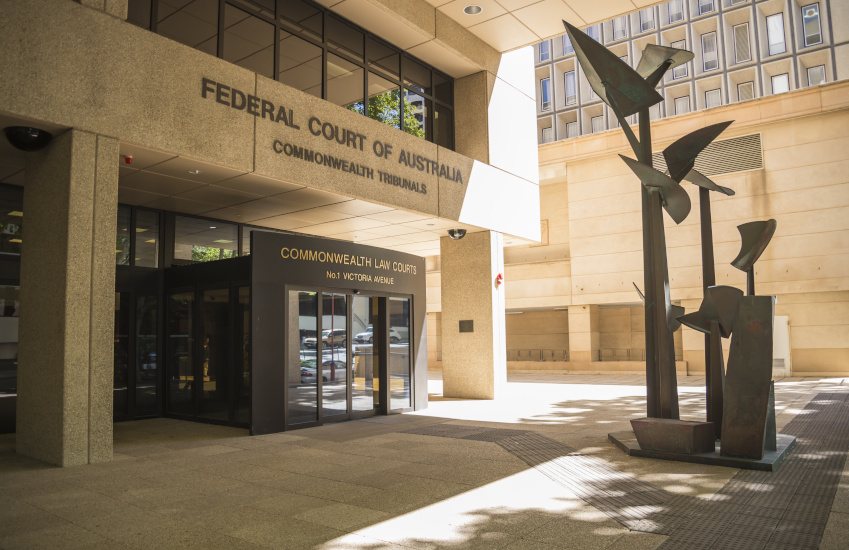The tax evasion scheme, which took place between 2009 and 2012, involved the promotion of an emissions reduction purchase agreement (ERPA) where investors were told they just needed to place a 15 per cent deposit to claim a tax deduction for the full purchase price of carbon reduction credits.
Solicitor and qualified tax specialist Dr Bruce Rowntree, who was central to the creation, operation and marketing of the schemes, acted alongside chartered accountant Peter Donkin and financial planner Rinaldo Manietta, with the trio promoting the decision to enter the ERPA as a “no-brainer” because of the attractive tax savings that far exceeded an investor’s initial deposit.
You’re out of free articles for this month
The scheme attracted approximately 200 individual and business investors who invested $8.6 million over the four years and claimed deductions totalling over $58.1 million.
The Federal Court found that Dr Rowntree received $6.4 million for his role in the scheme between 2009 and 2012, with Mr Manietta receiving $1.1 million over the four years, and Mr Donkin receiving $194,320 between 2010 and 2012.
Honourable Justice Steven Rares found that the trio had promoted and marketed the scheme with its dominant purpose of helping investors, who had no commercial requirement to purchase carbon reduction credits, obtain a tax deduction that was worth about twice the expenditure on the deposit.
“Each of Dr Rowntree, as a solicitor and tax expert, Mr Donkin as an accountant (except in the 2009 tax year) and Mr Manietta as a financial planner, and their respective associates, in recommending that a potential investor acquire one or more contract lots and, in Dr Rowntree’s case, publishing the marketing material to other professional advisers, was intending to suggest the suitability and soundness of such an investment based on its obvious fiscal attractiveness,” Justice Rares said.
“None of the investors came to the [trio] or their associates seeking REDD or other carbon credits. Rather, the [trio] and their associates marketed and promoted the ERPAs to the investors on the basis of the promised tax deductibility of the full purchase price on payment of only the 15 per cent non-refundable deposit.”
In ordering Dr Rowntree to pay $7.75 million, Mr Manietta $1.45 million and Mr Donkin $210,000, Justice Rares said it was necessary to impose a “powerful and drastic” penalty to act as a deterrent to professionals who were considering promoting tax exploitation schemes.
“In my opinion, it is important that the message be sent loudly and clearly that engaging in the promotion and marketing of tax schemes involving tax avoidance and tax evasion, such as occurred in each of the 2009, 2010, 2011 and 2012 schemes, cannot be tolerated by the community,” Justice Rares said.
“Such conduct requires the imposition of a penalty that will achieve both general and specific deterrence, in order to ensure that other persons, and particularly professional lawyers, accountants and financial planners, will not engage in similar activities.”
The decision comes after the Federal Court in February issued a $22.68 million penalty to an accountant who had promoted tax exploitation schemes relating to the R&D tax incentive — the highest penalty to date for promoters of tax exploitation schemes.
In welcoming the Federal Court’s decision, the ATO said it remained committed to identifying and disrupting arrangements that exploit the tax system.
“The penalties handed down reflect the seriousness of the conduct and the scale of the scheme,” the ATO said. “The behaviour of the promoters, who received significant financial benefits for their actions, showed little regard for their clients who trusted their advice.
“Protecting individuals and businesses from getting inadvertently caught up in schemes like these is a priority for the ATO.”
Jotham Lian
AUTHOR
Jotham Lian is the editor of Accountants Daily, the leading source of breaking news, analysis and insight for Australian accounting professionals.
Before joining the team in 2017, Jotham wrote for a range of national mastheads including the Sydney Morning Herald, and Channel NewsAsia.
You can email Jotham at: This email address is being protected from spambots. You need JavaScript enabled to view it.

 Login
Login







